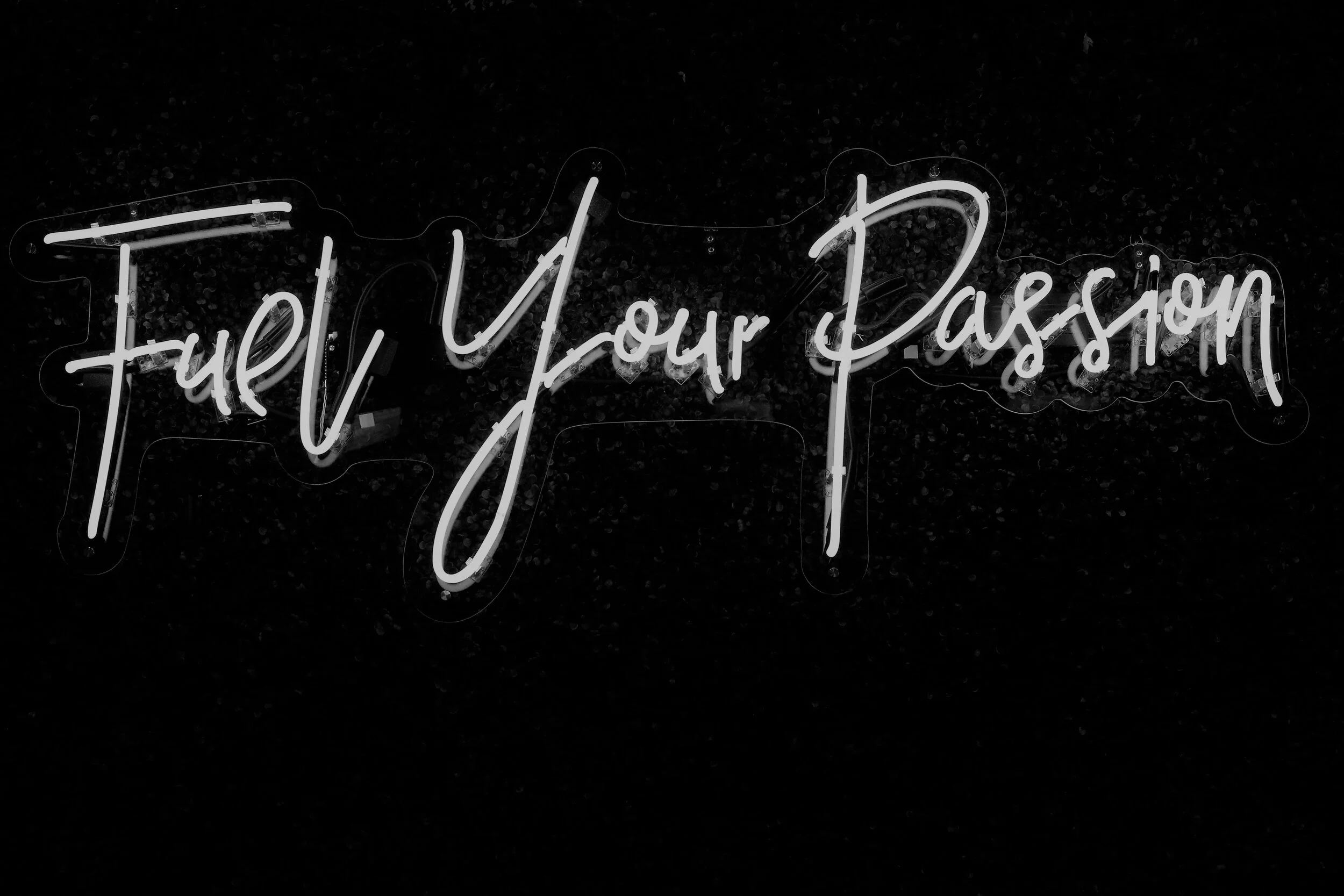Create Your Legacy - The Magic of Building a Personal Brand
Let’s explore building a personal brand, what personal branding is, why you need it, and the role it plays in building business relationships. Personal branding creates the space for your creative side to come out.
Most of us understand the power of networking - creating business relationships can have a profound impact on our career trajectory. Work with the time that you have, even one hour per week spent networking can have massive payoffs.
Building business relationships is a lot easier than you think. Reference my process for preparing for a coffee chat and the ultimate guide to networking to start business networking today.
Here’s my honest advice, start before you’re ready. If you wait until you feel ready, you’re never going to take action. Set up some virtual coffee chats. Tweak my process to fit your personality, test and make adjustments. This isn’t set in stone. You can play around with it.
Once you’ve ripped the bandaid off, jumped into the deep end, and played on the networking field, you’re ready to explore the next layer: personal branding.
“As much time as you put into it, that’s what your achievements are going to be when you come out of it.”
Personal branding is more important now than it has been before.
Let’s think about the consumer landscape. Customers purchase from brands that they know, like, and trust. We’re now consuming in a different way - we’re placing an emphasis on brands to take a stand on social issues. It’s easier to place trust in a face than it is in a logo.
Let’s look at Lululemon - the company itself has social media pages & they have brand ambassadors that represent them. These are people that are aligned with their vision and values. It’s like word of mouth marketing. If you follow a fitness instructor - you’ve been consuming their content for awhile and you trust them.
Let’s say you’re in need of a new pair of workout shorts. If this instructor is raving about a pair of Lululemon products that you happen to be on the market for, you’re more likely to trust that recommendation versus spending the time to do your own research to find a pair of shorts to purchase. This is why it’s important to have an engaged social network.
Personal branding defined: it is your public image. It positions you as an authority and leader in the space while honing in on your skills. As a result, you begin to be seen as someone with credibility. These are really important elements that make you unique and set you apart from the competition. It’s what makes someone want to hire you over someone else. Building a personal brand is like putting a face to your name.
We’re more likely to build emotional connections when we can relate, when we feel seen and heard. We turn to role models that are in the stage of life that we wish to be in. We consume content at rapid rates - Instagram scrolls, article and podcast binging.
As a business professional, having an established personal brand can pay off. Let’s look at an example. Say you’re a hiring manager and there’s two strong candidates for the role:
Candidate A: Has been working in the field for 10 years. They’ve taken on many projects. Work samples are very impressive. Previous managers raved about them.
Candidate B: Has been working in the field for 10 years. They have a unique perspective, their work samples caught your eye. Previous managers had a lot of good things to say about them. This person has been using their platform to speak at events, get featured in different online publications, collaborate with different people in the space, and they've been interviewed on a number of podcasts.
Which candidate are you more likely to hire? Candidate B offers your company more. Chances are they have a pretty good social network, people follow them, people trust them. As a company, it didn’t cost you anything to create their personal brand. But it’s something that you can tap into and value from.
What are the results of personal branding? Career growth and increased impact.
Sounds pretty powerful, right?
This next section is going to teach you 4 steps to develop your personal brand.
Step 1: Get clear on your objective.
I highlighted above the power of having a personal brand. Now I want you to get super clear on why YOU want to develop a personal brand, what your overall goal is. You have to know why you’re doing something, before you really dive into doing it.
Why? It’s two fold: this will help guide you towards saying “yes” or “no” to opportunities that come up for you. There are going to be challenges that come up, but staying rooted in your overall goal will help you push through those challenges.
Create a brain dump and answer some of the following - objectives:
What am I hoping to achieve?
What would make this a success for me?
How does this play into the big picture?
What else could be available to me as a result?
Pro tip - keep this somewhere that you can either see it or hear it (ex. recorded on your phone) every day. This helps you stay rooted in that vision.
Step 2: Come up with your personal brand statement.
Your personal brand statement is similar to a company’s mission.This is a key element, as it drives everything that is created, designed, and announced. Your personal brand statement will help you stay on track, ensure that the image that you desire is being portrayed, and it leads the way for you to say “yes” or “no” to opportunities that are aligned/are not aligned.
This is where you gain clarity on your strengths, what you want to be known for, and the impact that you want to make.
Create a brain dump and answer some of the following - strengths and weaknesses:
What comes naturally to you? (ex. teaching)
What is easy for you? (ex. building relationships)
What would you take on more of, if you could? (ex. community management)
What would you delegate, if you could? (ex. analytics)
When you receive compliments for work or interactions, what is it usually for? (ex. Educating on social media)
What have you crafted your own framework for? (ex. 5 step sales process)
Create a brain dump and answer some of the following - values and passion:
What qualities do you look for from a company that you purchase from, a company that you work for, and office dynamics? (ex. storytelling to create authentic relationships, communication to soundboard ideas, feedback to adjust)
What are non-negotiables for you? (ex. small team)
When you have free time, what do you gravitate towards? (ex. playing squash)
What do you spend leisure time learning more about? (ex. sales skills or reading sports articles to better understand the power of the written word)
Create a brain dump and answer some of the following - leaving a legacy:
If someone was to describe me to a stranger, what would I hope that they would say?
What change do I want to make?
I would stay rooted in ___, regardless of how tough things get because I truly believe in it.
The brain dump section is super important because that tells us what we want to be known for. You can even take this one step further.
Lewis Howes hosts a podcast called The School of Greatness <link>. It was one of the very first podcasts that I got hooked on. He sits down and chats with high performing experts (business, entrepreneurs, writers, athletes, etc). I highly recommend giving that podcast a listen, if you haven’t yet. At the end of the episode, he asks a very important question. This question is going to help you dig deeper.
He asks, “let’s say your time on earth is done, you’ve accomplished everything you hoped to, you’re at the age that you want to be at. You have to take everything that you created with you. But you can write down & leave behind three truths. Three things that you’ve learned that will impact others after you. What are those three truths?”
From here, create a statement (1-2 liner) that describes the personal brand. Include who you are, what you do (your superpower a.k.a. what sets you apart), and the meaning of this work (a.k.a. your greater purpose).
“People do not buy goods and services. They buy relations, stories and magic.”
Step 3: Determine who you are trying to speak to
This would be a spin off of a company’s avatar or ideal client. After step one, you should have a solid foundation to guide you through this part.
Create a brain dump and answer some of the following - your audience:
Who am I speaking to?
What type of people do I want in my network?
Who am I aligned with?
What are their ages?
What are their livelihoods?
Where do they live? If applicable.
What are their dreams?
What challenges are they currently facing?
Come up with some general qualities. This is going to play a big role in the communications strategy that you put out there. Knowing who you want to speak to is going to help you craft content that attracts those people and repels the audience that you aren’t looking to attract. More on this later.
Step 4 - Decide on your medium
What platforms are you going to use to build this personal brand? Remember that the key is staying consistent, don’t shoot too high here. Stay realistic. If you’re crushing the realistic targets that you’ve set, then you can change your targets. This is about checking in, honing our energy, and making adjustments where and when needed.
Create a brain dump and answer some of the following - platforms:
What platforms do I want to use to build my presence?
How often do I want to be on this platform? (i.e. how much time a week do you want to spend on this?)
What will I contribute? (ex. Articles, live training, etc).
What collaborations do I desire?
What topics can I educate on?
Congratulations! You have the playbook for your personal brand. Now you’re ready to dive into your communications strategy.
If you’re ready to take your action a step further, check out how we can work together to build your personal brand.


